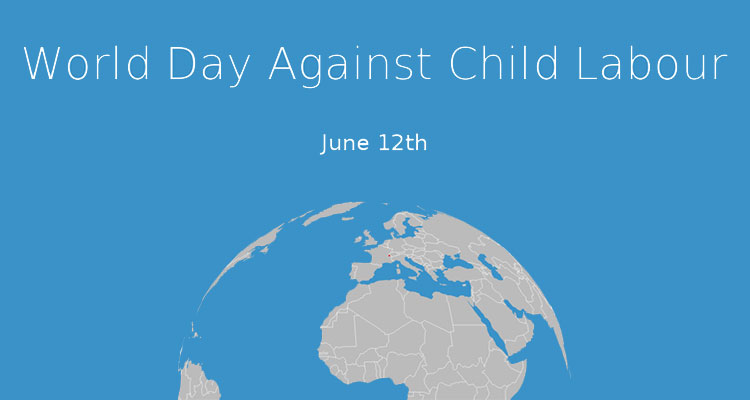On the occasion of the World Day Against Child Labour (12 June), Federica Mogherini, the High Representative of the Union for Foreign Affairs and Security Policy and Vice-President of the Commission, Neven Mimica, Commissioner for International Cooperation and Development, Christos Stylianides, Commissioner for Humanitarian Aid and Crisis Management, Dimitris Avramopoulos, Commissioner for Migration, Home Affairs and Citizenship; Vera Jourova, Commissioner for Justice, Consumers and Gender Equality, and Marianne Thyssen, Commissioner for Employment, Social Affairs, Skills and Labour Mobility made the following statement:
Across the world, hundreds of millions of children who should be in school are forced to work, often in dangerous conditions. As the European Union, we have been staunchly engaged in the fight to end child labour worldwide, boost access to education and strengthen child rights. This is why, as we mark the World Day Against Child Labour, we reaffirm our commitment to the 2030 Agenda for Sustainable Development’s target to end child labour in all its forms by 2025. In order to achieve this target, we have taken action across the world.
Getting more children access to education is a top priority for the EU. To help, we have allocated over €700 million to provide access to education for children displaced by the Syria crisis. In the Philippines, we support a community-based approach in combatting child labour in hazardous industries such as sugarcane plantations and mining. In Bangladesh, we are fighting the worst forms of child labour. In Colombia, Democratic Republic of the Congo, Palestinian Territories, Sudan and Lebanon we support actions to help children associated with armed forces, groups and gangs who’ve suffered from violence.
The EU further works to strengthen the systems that protect children. In order to provide specialised protection of unaccompanied and separated minors, the project ‘Better Migration Management’ aims at improving migration management at regional level in the Horn of Africa. For example, systems of birth registration, make it easier to effectively enforce compulsory education and labour rights. This is one of the reasons why the European Union is working to ensure children’s access to an identity, for example through projects in Mozambique and Niger. In the current context of the refugee crisis where many children are displaced, protecting children at all stages of migration is a key priority for the EU. In April this year, the Commission set out a strategy to protect all children in migration and ensure children don’t fall in the hands of criminal networks using them as workers.
As part of its integrated approach to children’s rights, the European Union advocates for and supports the ratification and effective implementation of the UN Convention on the Rights of the Child, the ILO [International Labour Organisation] Convention 182 on the worst forms of child labour and the ILO Convention 138 on the minimum age for employment. We will continue to support our partner countries in eliminating child labour in global supply chains through integrated interventions such as better jobs for youth and adults of working age and advocating for responsible production and consumption. Continuing to deliver on social protection floors is also a key factor contributing to a decline in child labour.
The European Union will continue to cooperate with international organisations, with the United Nations’ agencies, in particular UNICEF, and relevant Civil Society Organisations. We welcome the IV Global Conference on Child Labour to be held in Argentina from 14-16 November 2017 as an important opportunity to agree on effective and urgent plans to achieve the sustainable elimination of all forms of child labour by 2025.



